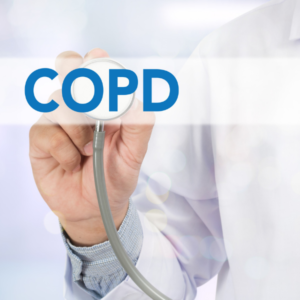
Pulmonary emphysematous is a subgroup of chronic obstructive lung diseases (COPD) known as chronic obstructive pulmonary disorder or chronic obstructive lung disease. COPD is a chronic disorder of the airway, which involves narrowing of the airways. COPD affects millions of people, most of whom are aged 65 and above, but can occur at any age, if the condition is diagnosed early enough.
COPD, also referred to as emphysema, is a type of chronic obstructive respiratory disorders that affects the airways in the lungs. It causes severe breathing difficulties and can even lead to death if not treated properly. There are a number of factors that may contribute to COPD, including smoking, long periods of rest and sleep, and a lack of physical activity. There are many other health conditions that can cause symptoms similar to COPD. People with COPD may feel tired all the time, suffer from coughing, shortness of breath, fatigue, headaches, muscle and joint aches, weight loss, and chest pains.
Chronic bronchitis is a common COPD symptom. Chronic bronchitis is a chronic inflammation of the air sacs within the lungs, due to viral infection, bacterial infection, or exposure to irritants. The condition is characterized by severe chest pain, coughing and wheezing, that is aggravated by environmental irritants.
Emphysematic emphysematous pulmonary disorder is another type of COPD that affects the lungs. Emphysematic emphysematosis is an abnormal build-up of the protein cilia, which in effect, blocks the flow of air. In this case, there are too many cilia in the lungs, causing obstructions in the respiratory passages and thus air passage. Emphysematosis causes persistent symptoms that are similar to COPD, such as constant coughing, shortness of breath, chest pain, and heavy breathing.
The accumulation of emphysematogenic protein-protein aggregates in the lungs is usually caused by excessive exposure to airborne irritants, such as smoke and dust, as well as infections, which cause inflammation of the mucous membranes. This emphysematogen can also be caused by a decrease in the flow of lymph fluid. The increased accumulation of this substance in the lungs can result in the formation of pulmonary fibrosis, which is very painful and makes the person dependent on constant artificial ventilation.
Emphasis is defined as the production of abnormally high levels of cilia in the lungs. The lungs will continue to produce more cilia, even when there is a lack of cilia, leading to a worsening of the condition. The only way to treat emphasis is to remove the cilia through surgery.
Emphysis can cause immediate effects such as shortness of breath, shortness of breath and wheezing, chest pain and cramps, and fatigue. However, over time, the condition progresses and can affect other systems in the body, such as the digestive system, kidneys, liver, kidneys, stomach, and brain, and can cause weakness and memory loss.
Many accent symptoms arise from a slowdown in the lungs' ability to absorb oxygen, especially at times when it is most needed. This is why the symptoms of emphysema are often found first on routine check-ups after the usual signs of COPD have already appeared. Although chronic accent can be fatal, with the right treatment, it can be controlled or even eliminated.
The presence of emphysematogens is usually determined using X-rays, but cilia can also be measured. If the cilia do not enlarge, it is likely that the lungs are not producing enough cilia to block the airway.
If the cilia do not enlarge, the patient is more likely to develop progressive emphysematous disease. Progressive emphysema is more difficult to control because it tends to build up in the lungs and eventually affects all parts of the body.
The most important way to prevent the build-up of emphysematogenous protein aggregates in the lungs is to reduce exposure to irritants such as smoke and dust. Since exposure to these substances is one of the most common causes of emphysema, controlling the amount of time you spend outdoors as well as cleansing your lungs frequently can reduce your chances of emphysema.
Other patients experience symptoms such as chest pains and cramps, shortness of breath, dizziness, chest discomfort, and an increased need for artificial ventilation, and sometimes, they may experience symptoms of pleural effusion (inflammation of the lungs). When it comes to treating this condition, patients should consult their physicians.
